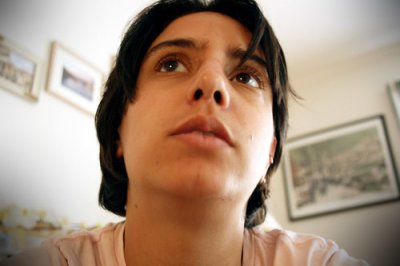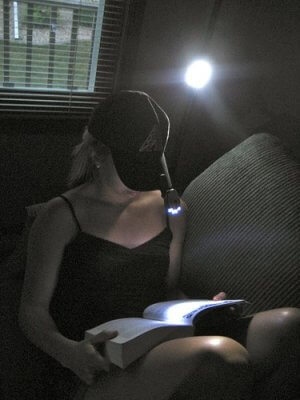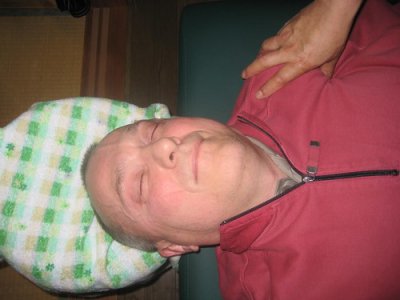Anxiety Therapy – Which Therapies Actually Work?

By: Caitlin Regan
What kind of therapy is the right kind to help with anxiety? And can you treat yourself, or do you have to see a therapist for anxiety therapy?
Anxiety and anxiety disorders
Anxiety means you have worried and increasingly illogical or fear-based thoughts that you can’t control. These thoughts are causing you more and more tension. This tension create symptoms such as sleep issues, a racing heart, sweatiness, and muscle aches.
An anxiety disorder means that your anxiety has been present for at least six months or more, and is now at the level that it directly affects your capacity to cope on a daily basis. This includes things like your career and your social life.
There is quite a range of disorders that fit under the category ‘anxiety disorders’, including:
- acute stress disorder
- generalised anxiety disorder (‘chronic anxiety’)
- obsessive compulsive disorder (OCD)
- panic disorder (with or without agoraphobia)
- social anxiety
- social phobia
- specific phobias.
NHS and NICE recommended treatments
Yes, self-help is a good start
Anxiety is one of the conditions which can really benefit from self-help. So much so that it’s now the first line of recommended treatment by both the national health service (NHS) and the National Institute for Health and Care Excellence (NICE), the authority health practitioners refer to.
NICE divides self-help into things you do by yourself (non-facilitated self-help’), or self-help that is a program, ‘guided self-help’.

By: Denise Krebs
Non-facilitated self-help includes educating yourself about anxiety, or perhaps joining a support group. It also can include things like exercise, relaxing techniques like yoga and pilates, and lifestyle changes such as avoiding drinking and smoking.
Learn more on the NHS page about self-help for anxiety.
Facilitated self-help
If you go to see your GP about anxiety, one of the first things you may be offered is a guided self-help course you do yourself. This means a course you do in your own time, over the internet or using a workbook. It will last six weeks or more.
The exercises will be taken from a type of therapy called cognitive behavioural therapy (CBT), which you can read more about in the next section.
You might also be offered the option of group therapy. This means that once a week you’d go work with a therapist-led group of people, all learning how to manage anxiety together.
Cognitive Behavioural Therapy (CBT)
CBT is currently the most recommended therapy for anxiety in the UK and one of two recommended psychological interventions suggest by the NICE anxiety and anxiety disorder guidelines. It is generally the therapy you will be given if you use the NHS to deal with your anxiety.
Cognitive behavioural therapy is a short-term, structured and time-limited (up to four months) therapy. It doesn’t delve into your past but focuses on how to improve your present-day life by learning to recognise and control the connection between your thoughts, feelings, and actions.
In your CBT sessions you learn things like how to recognise when thoughts are or aren’t realistic, how to have more balanced thoughts, and how to take positive actions that stop your thoughts from spiralling into anxiety and depression.
Applied relaxation

By: Charles J Danoff
Anxiety is a mental health disorder, but its symptoms are surprisingly physical.
The body triggers into fight, flight or flee mode, leaving you so tense that some people describe anxiety attacks as feeling like they are going to have a heart attack.
So relaxation can really help deter anxiety. Applied relaxation is the second psychological intervention recommended by NICE and offered by the NHS. It is a systematic and controlled way of learning how to quickly and deeply relax your body. Like CBT, it’s a short-term therapy, where you’ll see a therapist on a weekly basis for up to four months.
Other forms of anxiety therapy
There are several other therapies to help you with your anxiety, some of which are evidence-based.
These are not, however, usually available on the NHS and will involve seeking private treatment at your own expense. On the other hand, you can avoid long waiting lists and choose the therapist you work with.
Mindfulness-based cognitive therapy (MBCT)
Mindfulness meditation as a daily practise is evidence-based to help with anxiety. And mindfulness-based cognitive therapy (MBCT) integrates mindfulness with the tools also offered by CBT of managing your thoughts and behaviours.
A small but promising 2018 study published in the journal “Frontiers in Psychology” found that MBCT was helpful in reducing symptoms in adults with social anxiety, confirming research from an earlier 2010 study that found MBCT helped young people with social anxiety.
Behaviour Therapy/ Exposure therapy
This involves pushing yourself to take certain actions in order to challenge your anxious thoughts, ‘exposing’ yourself to the very thing you fear in a managed, controlled and safe way. It is a controversial therapy, sometimes offered for OCD and phobias, more commonly used in the United States than in the UK.
Note that exposure therapy does not mean you have to go and directly approach what you fear. To take a simple example of a fear of public speaking, you are not going to be forced to immediately sign up to make a speech.
Instead exposure therapy can involve things like imagining what you fear, or role-playing with your therapist, or even using virtual reality, noticing how you respond and talking through things with the therapist, or using relaxation exercises to change your response.
Clinical hypnotherapy
Clinical hypnotherapy is not like stage hypnosis. You don’t ‘lose control’ at any time, this is just one of many myths about hypnotherapy. Instead, hypnotherapy for anxiety is a process of deep relaxation that helps you access and manage your unconscious thoughts.
An overview on research studies of hypnotherapy published in ‘The Expert Review of Neurotherapeutics” suggests that hypnotherapy requires more research, but is “an efficacious treatment for state anxiety (e.g., prior to tests, surgery and medical procedures) and anxiety-related disorders”.
Will I be offered medication to treat my anxiety?
Here in the UK medication might be offered for anxiety if things like guided self-help have had little effect. You might be offered a serotonin reuptake inhibitor (SSRI) or tricyclic antidepressant (TCA).
Note that it is always your choice whether to take medication or not and your medical professional should always thoroughly explain what it would entail, including side effects and withdrawal symptoms if the treatment is stopped suddenly.
Ready to try CBT or MBCT therapy for anxiety? We connect you with some of London’s most experienced anxiety therapists. Or use our booking site to find a UK-based anxiety therapist near you as well as online therapists you can access from anywhere.





“Anxiety means you have worried and increasingly illogical or fear-based thoughts that you can’t control.” I would disagree with this since I don’t have these thoughts but I do suffer from generalized anxiety. My symptoms progressively worsened after several traumatic events, and unfortunately my maternal lineage seems to suffer from this predisposition. I choose not to take medication since I find it did not help (precipitated me into a full-blown panic attack or just left me overtired) and instead have focused on mindfulness, proper rest, exercise and enjoying creative pursuits. I have read many articles on anxiety / PTSD and I find the standard belief that we have “negative or worried thoughts” completely ridiculous – I’m a very positive person who has lived through many difficult situations (divorce, cancer, psychological + physical abuse) and I refuse to curl up or give up. My body has unfortunately held on to trauma far longer than it should have and I am learning to teach it how to let the anxiety go.
Hi Isabelle. The National Institute of Health and Care Excellence (NICE), the main reference for healthcare providers in the UK, defines generalised anxiety disorder like this – “GAD is a common disorder, of which the central feature is excessive worry about a number of different events associated with heightened tension.” We appreciate that you are resilient and have positive thoughts. Having anxiety does not mean you can’t have positive thoughts? You are not your anxiety after all, you are a person who gets anxiety. Like everyone, a person with anxiety will have a myriad of thoughts depending on the given moment. And anxiety isn’t non stop, even with GAD. And we all, as you are obviously aware of with a mindfulness practise, also have different ‘tracks ‘of thoughts. Conscious thoughts we hear easily or choose to hear, and then an underlying hum, unconscious thoughts that come to surface now and then which might be a bit more challenging. In summary, we appreciate you are an individual, but our evidently articles have to be inline with current research and definitions and there is unfortunately no perfect definition of any mental health issue – they are all, after all, not ‘illnesses’ we can see under a microscope but terms created by health care professionals to describe groups of people as much as possible. But those groups are made of individuals who will all be slightly different. Best, HT.
Great article! From knitting to cooking, the path of dealing with anxiety differs for each individual. But what should be a constant is a compulsory workout regimen. Through regular exercises of any form, it becomes easier to deal with anxiety and slowly reduce the dependency on medicines. But that can take years. Nevertheless, exercise is must.